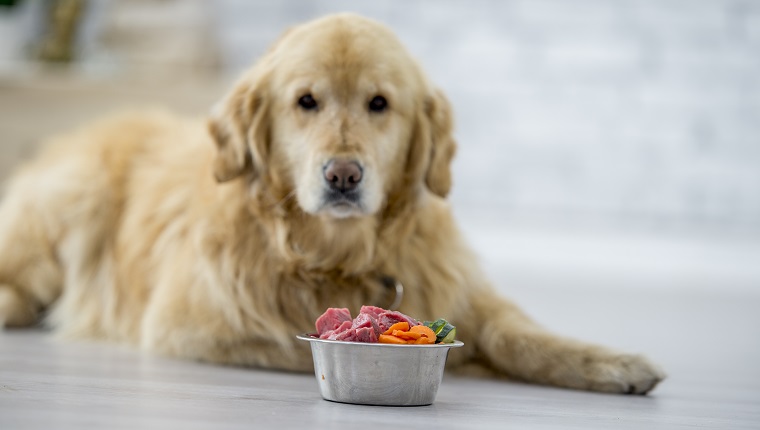You might have been under the impression that dogs are natural carnivores and need to eat a lot of meat in their diet. But dogs are actually omnivores, and a balanced omnivore diet involves a mix of meat and plant foods.
Omnivores consume a mix of both meat and plants to meet their daily nutritional needs. Humans are omnivores, and so are bears, birds, and dogs.
What does that mean for your pet’s diet? Here’s what you need to know about dogs being omnivores.
What Makes Dogs Omnivores?
When it comes to why dogs are omnivores and do best on an omnivore’s diet, there are a number of reasons at play.
First, the size of a dog’s intestine is adapted to comfortably digest both meat and plant matter.
Cats have markedly smaller intestines, which is part of the biological reason why they are considered to be obligate carnivores who need meat to make up most of their diet, but dogs are physically equipped to easily digest plants too.
Secondly, dogs are born with teeth that are equally capable of grinding down bones as chewing up plant matter.
As omnivores, dogs can create an amount of vitamin A from betacarotene found in plants. This is essential for a canine’s health.
Historically, wolves in the wild would often eat grains. As dogs come from that line of ancestry, they are also equipped to eat and digest grains.
What Sort Of Foods Are Best For Omnivores?

Due to the fact that omnivores prosper when eating a diet that contains both meat and plants, it’s best to stick to serving your dog a balanced meal. Your veterinarian can help suggest some suitable types of food for your resident canine.
If you want to start adding an amount of fresh fruits or vegetables to your dog’s diet, it’s best to make sure that they make up less than ten percent of your dog’s daily diet. This way you’ll ensure that they are eating a balanced meal that satisfies all of their nutritional needs.
It’s a smart idea to serve up small portions of safe fresh foods like carrots, apples, and blueberries. Consider them snacks rather than the main part of any meal.
As ever, if you’re thinking about adding new foods to your dog’s regular meals — whether extra meat or fresh veggies — it’s important to consult with your veterinarian first.
What do you think about dogs being omnivores? What sort of foods do you feed your dog to give them a balanced diet? Tell us your thoughts in the comments section below!









